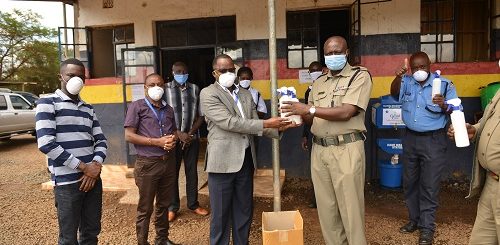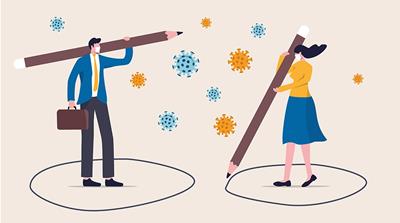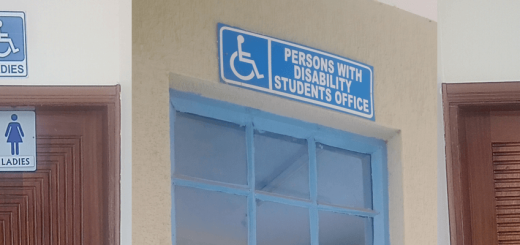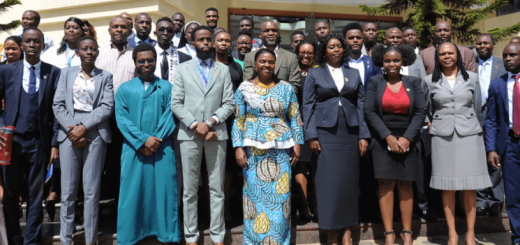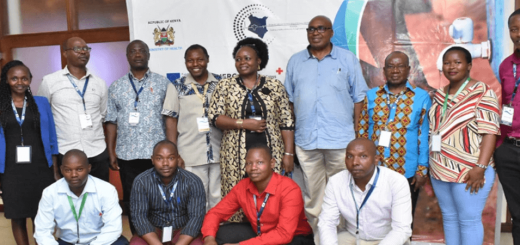Showing Compassion in times of Devastating Loss and Grief: COVID-19 Times.

By:
Dr. Jane G. Nyutu (Mount Kenya University)
Counselling Psychologist
Life -skills, Mentoring and Psycho-education counsellor
Leadership Coach – Leadership Cycle Profile (360).
Introduction
With many cases of COVID-19 being reported globally whereby fatalities, quarantine, hospital and home -based care are emphasized daily, the reality of sickness, infirmity and death continue to haunt the humankind in a way.
Additionally, the aging culture, bodily changes, development through life, and significant life events such as anniversaries, departure of children for further education, marriage, a class reunion, the empty nest experience, retirement, birth of grandchildren, newspaper accounts of accidents, atrocities, epidemics obituaries, we see the unmistakable footprints of death. When we were born, we are told by the good book that there is an appointment day with death. However, most of us do not entertain the subject of death. Faw (1995) posits that we are a death denying culture. We tend to give very little attention to death and it is something we don’t plan for. Death finds us very unprepared (Brown,1990). It carries with it great trauma that must be dealt with, failure to which we carry it through life to our own detriment. Death is such a mystery that no one can stand confidently and talk about it without feeling the strangeness of the topic.
Most of us are going through loss and grief.
The world pandemic, COVID-19 has left a trace of loses and bereavements among families and individuals. Bereavement is losing a significant person whose life was intertwined with ours. This could be a parent, child, spouse, relative, colleague or a friend. Losses come in different ways and sometimes unspeakable ones such as miscarriage, stillbirth, abortions, divorce, or even bankrupcy. Grief is described as “the other side of the coin of love” (Jackson 1980:88). However, though these losses are all significant, death is on top of the list for causing the worst form of grief.
Do people grieve the same way?
No: grief depends on the bond we had with the deceased person. The closer the relationship, the greater the grief. In his book, “Unspeakable Losses”, Kluger-Bell, (1998) shares his wisdom that throughout life, we belong to a family, we develop bonds of friendship with each other that add meaning and purpose to our lives, these are precious relationships that take time to nurture and form. It therefore becomes painful to end these bonds through death.
Grief is a personal experience. It very unique and it is shaped by our personalities, history or cultural background (Deits, 2017).
Stages of Grief:
- Shock and numbness: When news of death first arrives, almost everyone experiences shock, becomes overwhelmed and stunned. Shock provides us with a brief sheltered rest before we begin the long journey through the agony with grief.
- Denial and withdrawal: sense of unreality and one keeps hoping it might be untrue.
- Guilt feelings that they could probably have done something better to save this life. But the opportunity to do this is completely gone.
- Anger that might be directed to the doctors and nurses, family members, close friends or even God. You feel like they are not responding to your grief the way you expect. Angry reactions are signs of denial and are symbols of your minds effort to shun the pain away.
- Blaming: might start blaming yourself or others for the loss. “If only I did this or that”, “I wish we took her/him to this hospital.”
- Questioning: Death leads us to question many things. Questions that begin with “why” like, “why him/her? Why did he not survive like so and so? “why did she die yet she was a good, kind person? Why did she/he suffer so much? Why are we going through this disaster? Why am I going through such heartbreak?
- Feelings of withdrawal/isolation/ loneliness -feeling like they are in this grief alone and people do not understand what they are going through. This is difficult time because when you need much help, you want to keep away. Tell yourself “these reactions are normal”. They are a path to recovery and say “it will not be forever”. Be aware that you still need others anyway to be less isolated and recover in a healthier way.
- Acknowledging the pain
- Adaptation and Renewal
Physical and emotional symptoms of Grief:
Feeling weak and drained of energy, inability to engage in routine work, low appetite, forgetting names, phone numbers, and other important data, a persistent dry mouth, physical aches and pains, fantasies with the dead, expecting them to return, disillusionment with the new normal, uncontrollable tears, lack of sleep, fatigue, intense anxiety, inability to focus/concentrate, on tasks anger and feelings as though you are dying inside (Deits, 2017).
Is Grief a Foe or a Friend?
Faw (1995:125) argues that when we walk through pain, we emerge with a deeper inner strength. Grief might change us completely if we allow us to learn from it lessons for life.
It is upon us to choose to remember the dead person with either painful memories or with a measure of contentment.
Ways of helping the bereaved
- Allow the person to mourn their pain.
- Offer yourself to be a companion in their grief
- Avoid talking too much. Be an active listener instead, sit in calmness and hurt with your friend. Your being present speaks louder than words.
- Chose your words wisely and avoid such words like “I know how you feel” because you don’t know. You might select words like “I’m hurting with you” or You must be feeling deep pain” This allows the person to empty their feelings.
- Refer to the person who has died by name and describe something unique they attached meaning to.
- Accept them to express their grief and confusion in words by crying in non-verbal ways.
- Resist the urge to pull the hurting person out of their grief with comments like “your parent is better off now”, “Keep strong”. This may be true but it’s not helpful now.
- Check on them several weeks or month later and find out how they are coping. Help them revisit their feeling since they have not forgotten.
- Provide practical help like bringing snacks, cooked meals, wash dishes, or take kids to school.
- Encourage to honor the loved one in a practical manner like visiting the grave, planting a tree in memory, writing a poem or a letter, or participating in something that mattered to them.
- Seek Help: In case you realize they are not coping in a healthy way, encourage them to seek professional help through grief counselling or to join a group of fellow mourners.
This kind of help and presence will help them deal with the jungle of emotion that accompanies grief and bear the pain and not become hopeless. They will in turn be able to experience the priceless benefits of good grief (Faw, 1995).
Signs of pathological Grief and help is needed:
- When your mind is preoccupied with persistent thoughts of self-harm. Keep telling yourself “I will continue living, I will seek help.
- Self -neglect: failure to self- care, skipping meals, eating junk and lack of exercise, no fluids, nutrition, not paying attention to rest and personal hygiene.”
- Stress overload leading to depression and feeling immobilized for weeks.
- Substance abuse to numb the hurting feelings. Using tranquilizers or sleeping tablets. Eating too much or too little,
- Anxiety: feeling like life has no meaning.
Dealing with grief is real work. It is a process and takes months to years. Sometimes you wake up feeling good and at times low in moods. You may have restless nights at times and others you may fall asleep easily. Feeling up and down, slowly but with awareness and patience, the good days will soon begin to outnumber the sad days. Self- awareness is very key in this journey because acknowledging the loss is the most crucial step towards total healing. You will not always feel as you do this moment for sure. Look around for all the resources available to help you push through and be kind to yourself and your feelings.
References
Brown, R. (1999). Surviving the Loss of a Loved One: Living Through Grief. AUTUM HOUSE Alma Park: England.
Deits. B. (2017). Life After Loss: A Practical Guide to Renewing Your Life after Experiencing Major Loss.
Da Capo Press Books Boston MA: USA
Kluger-Bell. K. (1998). Unspeakable Losses: Healing from Miscarriage, Abortion, and other Pregnancy Loss. Norton & Company, New York: USA
Faw W. H. (1995). Psychology in Christian Perspective: An Analysis of Key Issues. Baker Books Grand Rapids, Michigan: USA


